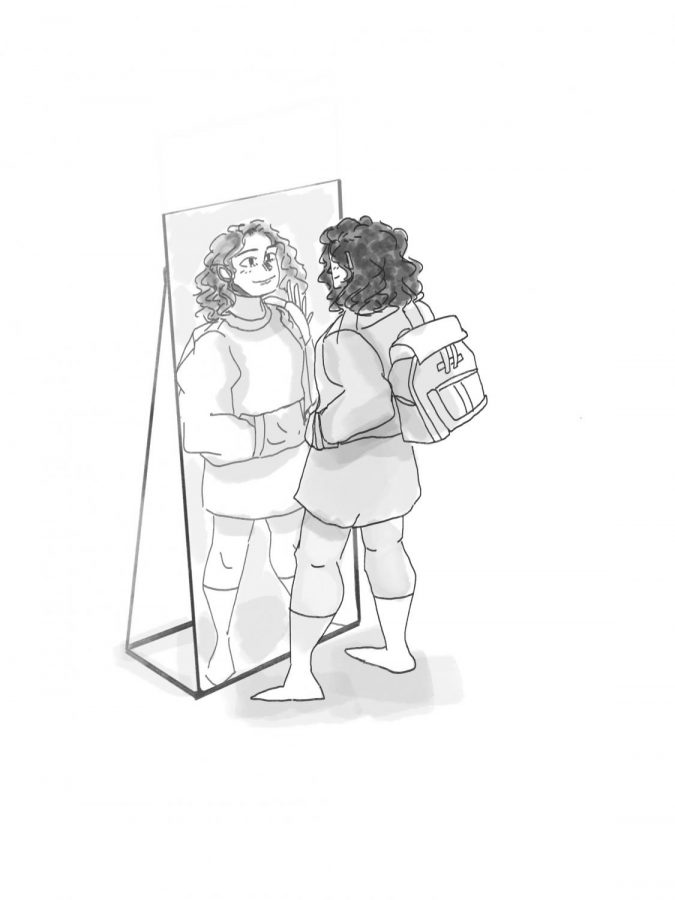Self-love fosters confidence, strengthens bonds
The term “self-love” has recently been gaining traction with the sharpening focus on mental health, but many people rarely stop to think about it or realize its importance. As teenagers, we often criticize ourselves for things that shouldn’t matter in the long run, such as beating ourselves up when we receive a sub-par grade and worrying about what others think of us. If we talked to people the same way we talked to ourselves, and if we criticized others as often we criticized ourselves, how would that reflect on us? Practicing the concept of self-love brings us on a path to acceptance and push us to develop of not only a stronger relationship with ourselves but with others as well.
Self-love begins with the ability to accept our flaws. Everyone has something—from our physical appearance to our personality—that makes them feel insecure. If we accept and love ourselves, however, we can reap so many benefits. With a newfound level of self-regard, there’s a part of our brain that begins to better understand our needs and how to cope with different situations.
Listening to music, exercising, spending time with family and friends and participating in other healthy activities aid in ensuring our mental well-being; they create a space with the freedom to be ourselves without wondering about how others may perceive our true identity. We often fail to recognize who we are until we accept ourselves. Our perception of identity is clouded by who we think we want to be. This fog tends to persist, as it largely goes ignored and unspoken of. The importance of self-love is not just to accept ourselves, but to gain valuable knowledge about who we really are and how to move on from all the negativity.
As we learn to spend more time with ourselves, we begin to trust ourselves and our instincts more; we become someone we can easily depend on. Many often seek love and affection from others without even being cognizant of this search. However, finding validation in the words and actions of others is no way to live. We must be able to rely on and cultivate our own ability to find happiness within in order to be our best selves. As our intrapersonal relationships grow stronger, the notion that we make ourselves happier than any other person could becomes all the more valid. That’s what many don’t realize: we’re capable of being satisfied and happy in a relationship with just ourselves.
Without self-love, it’s difficult to navigate relationships with other people. If we don’t know how to love who we are, how do we expect someone else to do it for us? Some struggle with believing they are worth more than what their negative thoughts tell them, but we all deserve to be the happiest we can. This happiness comes with being aware of our boundaries and what we want in all of our relationships, from those with a significant other to ones we have with family. Sometimes, there’s so much toxicity around and within us that we continue to put up with because we don’t know our self-worth. Caring for ourselves helps us find the courage to throw away the things that don’t make us happy and bring in the things that do, which is extremely important in well-functioning relationships. The more we strengthen our bond with ourselves, the more we’re able to strengthen our connection with the people around us.
There is all this talk about the importance of accepting your flaws, but with self-love, there also needs to be a stress on recognizing the qualities we love about ourselves. Currently, there isn’t enough light shone on the importance of developing a strong, confident relationship with ourselves to help us navigate a relationship with others. Loving ourselves has never been the norm, and it’s time that we learn to change that.
Your donation will support the student journalists of Henry M. Gunn High School. Your contribution will allow us to purchase equipment and cover our annual website hosting costs.


